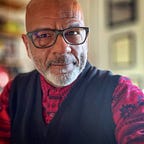An Old Harlem Music School, and a Beloved Song:
Progressive-Era Music School and Civic Center for African American Talent
On October 8, 1914, the Music School Settlement for Colored People opened in the adjoining Harlem townhouses of 4 and 6 West 131st Street. It was founded in 1911 in the San Juan Hill neighborhood (around today’s Lincoln Center) by a group of social benefactors of the settlement house movement; their aim, to offer high-level music education to Black children whom other institutions often barred by race or prohibitive fees.
Leading the initiative was David Mannes of the New York Symphony Orchestra, driven by personal gratitude to the Black violinist who first instructed him as a boy; along with his wife, pianist Clara Mannes, the sister of Walter Damrosch, director of the Institute of Musical Art. African American musicians David I. Martin (violinist) and Helen Elsie Smith (pianist) were the first musical supervisors of the school.
For this Harlem school, Mannes appointed a new supervisor, Black composer J. Rosamond Johnson. Johnson was renowned for collaborations on Broadway with his brother James Weldon Johnson, and especially for their transcendent, “Lift Ev’ry Voice and Sing,” a song still exalted since 1900 as the Black National Anthem.
Rosamond equipped the school with four pianos and $1,500 worth of instruments (about $40,000 today). Rosamond’s impressive teaching staff included Mme. Selika Williams, the soprano dubbed “Queen of Staccato,” and the first Black singer to perform at the White House (for President Rutherford B. Hayes); and H. Lawrence Freeman, the grand opera composer dubbed “the Black Wagner,” whose Negro Choral Society featured annually at Madison Square Park’s Tree of Light holiday festival years before Rockefeller Center’s.
Equally impressive were the Music School’s neighbors — legendary maestro James Reese Europe, who conducted several Carnegie Hall benefits for the school, lived down the block, and right across the street was the townhouse of a long esteemed concert patron, realtor Philip A. Payton, called the “Father of Black Harlem.” The first enrollees included a seven-year-old violin student who grew up to be stage and screen star Canada Lee.
A musical keynote of the school’s grand opening was played by the Coleridge-Taylor Quartet, a song that revealed the Johnson brothers’ wide influence as collaborators: “Since You Went Away.” The year before, Metropolitan Opera baritone Pasquale Amato’s infatuation with this “Southern-dialect” song, and his performance of it, induced other international stars to broaden their own classical repertoires with African American music.
When Rosamond sang the song himself at the funeral of venerable millionaire businesswoman and board member Madam C.J. Walker in 1919, the death of the Johnson brothers’ mother that same year gave it added poignancy
The Settlement School closed in 1919, and the first directors’ Martin-Smith Music School a few blocks away in Harlem assumed its activities. But while short-lived, the Settlement School remained a touchstone in the growing firmament of formal musical training centers and societies for African Americans, and for their increased admission to schools that were once closed to them.
As for the song, “Since You Went Away,” its popularity continued to grow. Upon James Weldon Johnson’s death in 1938, as he lay beneath a wreath from First Lady Eleanor Roosevelt, the renowned Southernaires radio quartet sang the author’s unforgettable words. And decades following Rosamond’s own death in 1954, new generations of Black composers have been inspired to set new music to James’s original 1899 poem, Sence You Went Away [sic], including H. Leslie Adams (1976) and Lori Celeste Hicks (2014).
Click the link below to hear baritone Kenneth Overton sing J. Rosamond Johnson’s hauntingly plaintive 1913 version of “Since You Went Away,” on the stoop of the former Music School Settlement for Colored People in Harlem:
<iframe src=”https://player.vimeo.com/video/679310928?h=cb488ce02a" width=”640" height=”564" frameborder=”0" allow=”autoplay; fullscreen” allowfullscreen></iframe>
___________________________________________________________________
This story appeared in different form in the 2021 On Site Opera (@onsiteopera) production, The Road We Came, filmed by Ryan McKinny and Tonya McKinny (@helioartsmedia), featuring baritone Kenneth Overton (@kennytheeoverton) and narrator Eric K. Washington (@ekwashington).
